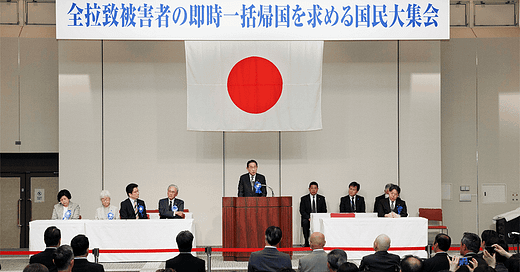Thank you for reading Observing Japan. This post is free for all subscribers.
If you are looking for timely, forward-looking analysis of the stories in Japans’s politics and policymaking that move markets, I have launched a new service through my business, Japan Foresight LLC. For more information about Japan Foresight’s services or for information on how to sign up for a trial, please visit our website or reach out to me.

In March, I asked whether Prime Minister Kishida Fumio’s approval ratings have found their floor. New polls from NHK and Kyodo suggest that that may well be the case. In NHK’s poll, conducted from 10-13 May, the government’s approval rose a point to 24%, and its disapproval fell three points to 55%. In Kyodo, its approval was virtually unchanged at 24.2%, an increase of 0.4 points, with disapproval at 62.6%.1 But even if his numbers have stabilized, Kishida faces a steep climb back to political viability – and the outlook for the Liberal Democratic Party (LDP) in a general election still looks grim.
The implication from both polls is that virtually nothing Kishida and his government are doing inspires public confidence. In NHK, 78% greatly (39%) or somewhat (38%) disapprove of the political reform plan produced by the LDP and Kōmeitō (discussed here). Kyodo found virtually identical 79.7% disapproval. Meanwhile, 74% think that Kishida has failed to show leadership in his response to the political funds scandal, and only 35% think that the political reforms under consideration will prevent the recurrence of this kind of scandal, compared with 58% who think they will not. Kyodo found that, perhaps not surprisingly, the public prefers significantly stricter measures than embraced by the ruling parties, with 42.7% preferring stricter penalties for omissions or lies on financial reports, compared with 24.7% who wanted to ban fundraising parties, 15.9% who wanted to ban ticket purchases by companies and associations, and 8.9% who wanted to lower the threshold for reporting purchases by individuals. 78.6%, meanwhile, favor the introduction of a renza-sei, a guilt-by-association clause that would make lawmakers formally responsible for financial statements and therefore criminally liable for any violations.
Perhaps the more worrisome sign for Kishida is that he is also receiving poor marks for his handling of the economy. In NHK, 80% say that they do not feel the effects of economic growth much (39%) or at all (41%). 62% say that they are not very confident (38%) or not at all confident (24%) that the tax cuts the Kishida government will implement in June – JPY 40,000 per person – will help incomes outpace price increases, while in Kyodo 90.5% said that they do not think that Kishida can secure real income gains within the year. Kishida needs good economic news – and the public perception that there is in fact good economic news – to engineer a comeback.
Thus, even with his approval ratings stabilizing, Kishida’s situation is precarious. In Kyodo, the Constitutional Democratic Party (CDP) has closed the gap with the LDP, polling 12.7% to the LDP’s 24.7%, with 32.3% supporting no party. The gap is wider in NHK, with the LDP’s polling 27.5% to the CDP’s 6.6% and Ishin no Kai’s 4.5%. NHK also found a significantly greater share of independents, totaling 44.3%. NHK also broke out party support by age, which showed that among the three youngest age cohorts (18-39, 40-somethings, and 50-somethings), the share of independents is above 50%. The challenge for the CDP and other opposition parties therefore is whether they can convince the skeptical younger cohorts to turn out to vote at all – lest the LDP once again prevail on the back of low turnout.
Still, the public may still be more open to political change than at any point since 2012. Kyodo found that 52% of respondents want opposition parties to coordinate in a general election campaign – indispensable for the opposition parties to reduce the ruling coalition’s majority – and NHK found that 48% prefer a general election to be held this year, including 20% who think a general election should be held at the end of the ordinary Diet session.
NHK’s sample was slightly larger, 1202 respondents compared with 1055 for Kyodo.



